Are you looking to create a clear and effective joint defense agreement? Crafting this type of letter can ensure that all parties involved understand their roles and responsibilities as well as the terms of collaboration. A well-structured template will help streamline communication, protect sensitive information, and foster trust among partners. Ready to learn more about how to draft the perfect joint defense agreement?
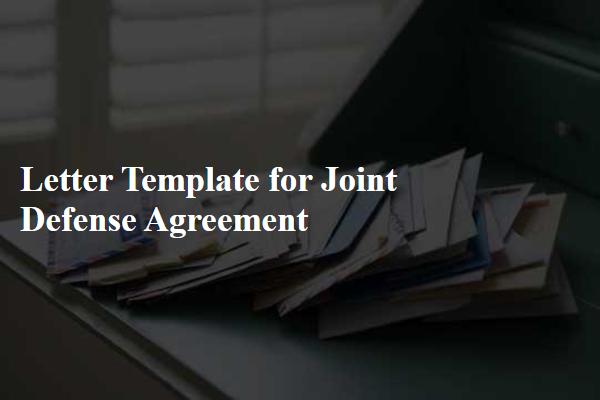
Introduction and Purpose
A joint defense agreement serves as a strategic legal framework that facilitates collaborative efforts among multiple parties, often in civil or criminal proceedings. The primary purpose of this agreement is to protect the confidentiality of shared information and communication between the parties involved. This can include attorneys, clients, or affiliated organizations, all navigating specific legal matters, such as intellectual property disputes or federal investigations. By entering into a joint defense agreement, parties can effectively coordinate their defense strategies while ensuring that privileged information, such as evidentiary materials or legal opinions, remains protected under attorney-client privilege. This collaborative approach not only enhances legal defenses but also optimizes resource allocation by pooling knowledge and expertise from various stakeholders in the legal process.
Parties Involved
A joint defense agreement (JDA) serves as a crucial legal framework for collaboration between parties involved in ongoing litigation or investigation, ensuring the protection of privileged communications. Entities such as corporations, law firms, or individuals like John Smith and Acme Corp must explicitly outline their roles and responsibilities. Specific details about the nature of the legal matters, for instance, a federal investigation involving alleged violations of antitrust laws, should be meticulously articulated. Furthermore, the geographic jurisdiction, such as the Southern District of New York, may impact the applicability of the JDA. The agreement should document the terms related to information sharing, confidentiality, and the duration of the collaboration, safeguarding sensitive data against unintended disclosures during the proceedings.
Scope and Cooperation
A joint defense agreement establishes a collaborative framework where multiple parties, such as companies or organizations, work together to protect their shared legal interests. This agreement typically outlines the scope of cooperation, specifying areas such as resource allocation, information sharing, and strategies for legal representation. Confidentiality protections are crucial, ensuring that privileged communications between the parties remain protected under attorney-client privilege. Also, delineation of responsibilities and contributions is essential, providing clarity on each party's involvement in defense efforts. Jurisdictions relevant to the agreement are identified, such as federal or state courts, emphasizing applicable laws governing the defense. This structured approach aims to enhance collective defense efficacy while minimizing risks associated with disclosure of sensitive information.
Confidentiality and Privilege
A joint defense agreement (JDA) is a critical legal document designed to protect the confidentiality and privilege of communications between parties involved in common legal interests, often in complex litigation or criminal cases. This agreement allows participating parties, such as corporate entities or co-defendants, to share information without waiving attorney-client privilege, which is crucial in preserving strategic discussions surrounding legal defenses. Key aspects of a JDA include defining the scope of shared information, outlining confidentiality obligations, and specifying the duration of this arrangement, which typically lasts until the conclusion of related legal proceedings or mutually agreed upon termination. Moreover, the document must ensure that any sensitive information exchanged, such as trade secrets or privileged communications, remains protected from disclosure in future legal contexts.
Termination and Amendments
A joint defense agreement outlines the collaborative efforts between parties in legal matters, emphasizing the sharing of legal strategies and defenses. Termination clauses often specify conditions under which the agreement may be dissolved, including mutual consent, completion of legal proceedings, or breach of terms by a party. Amendments to the agreement require written consent from all parties involved, ensuring that any adjustments reflect the evolving legal context or changes in partnership dynamics. Such details promote clarity and protection for all parties, particularly in high-stakes scenarios such as complex litigation cases or major investigations. Legal counsel typically advises on the drafting and enforcement of these provisions to safeguard the interests of the involved entities.
Letter Template For Joint Defense Agreement Samples
Letter template of Joint Defense Agreement for Multi-Party Representation
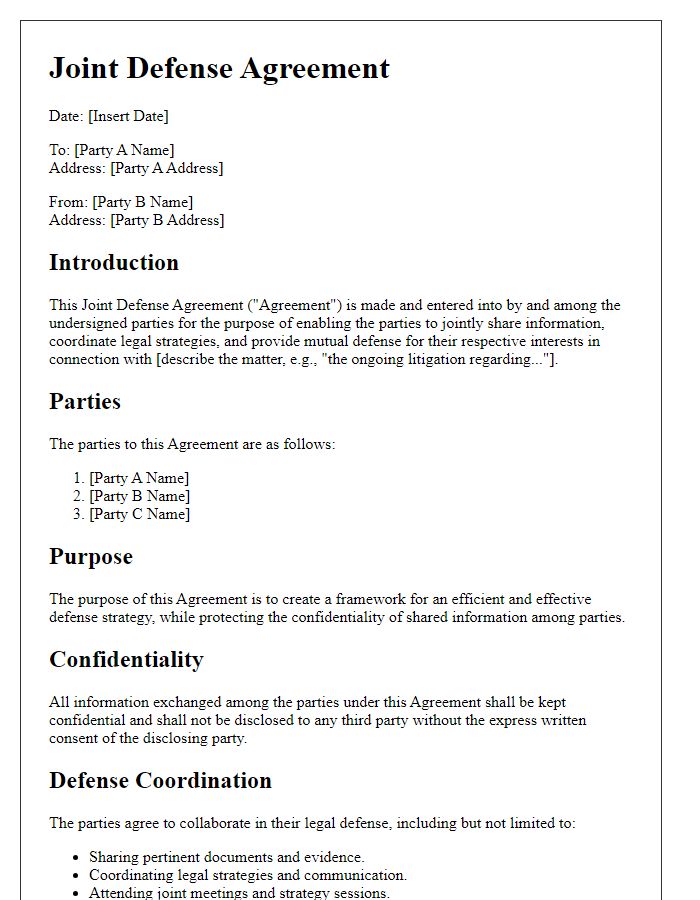
Letter template of Joint Defense Agreement for Confidential Information Sharing
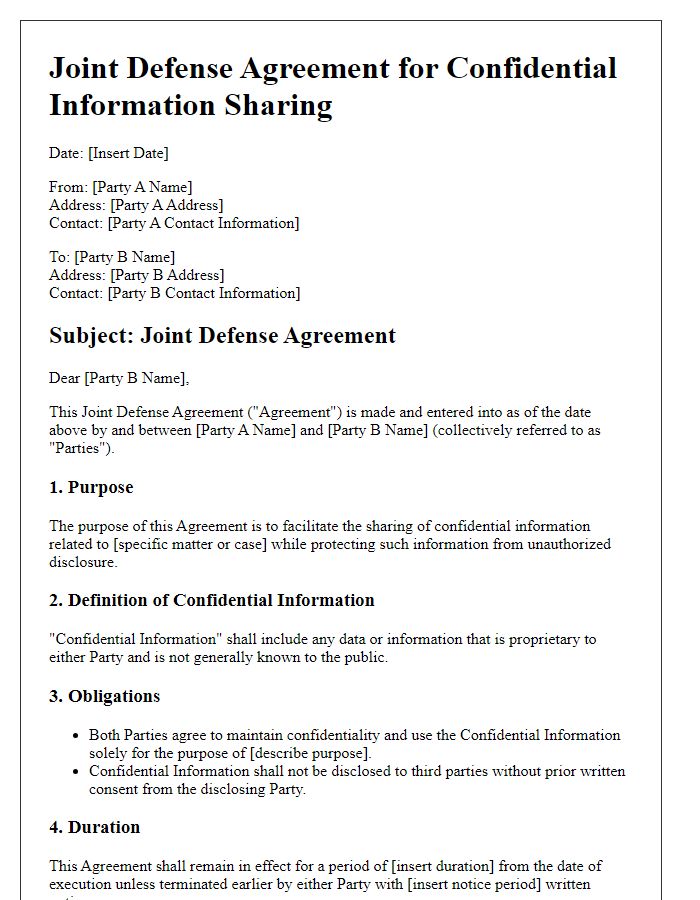
Letter template of Joint Defense Agreement for Coordinated Defense Efforts
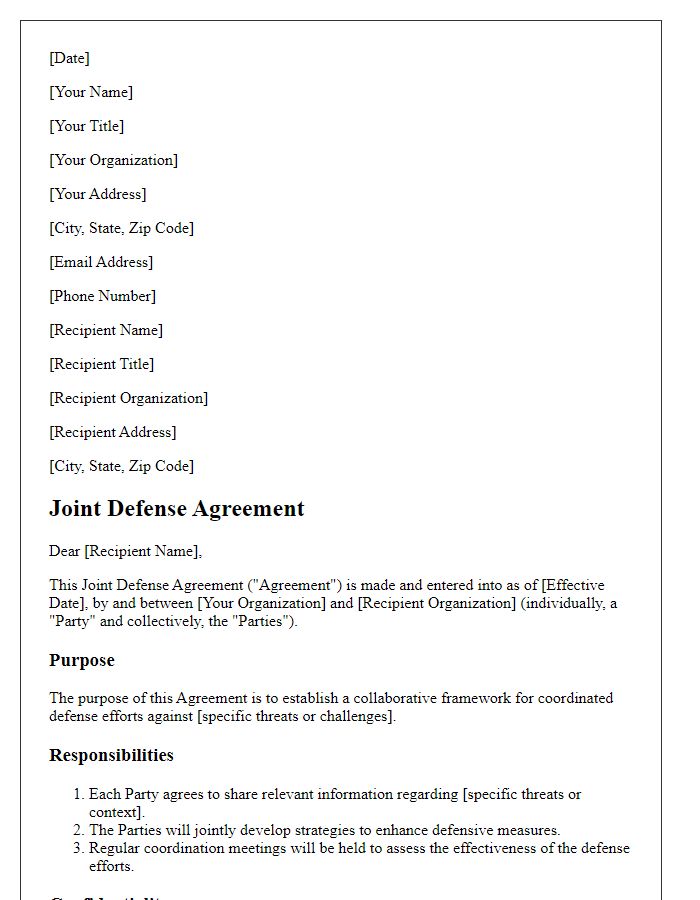
Letter template of Joint Defense Agreement for Regulatory Compliance Defense
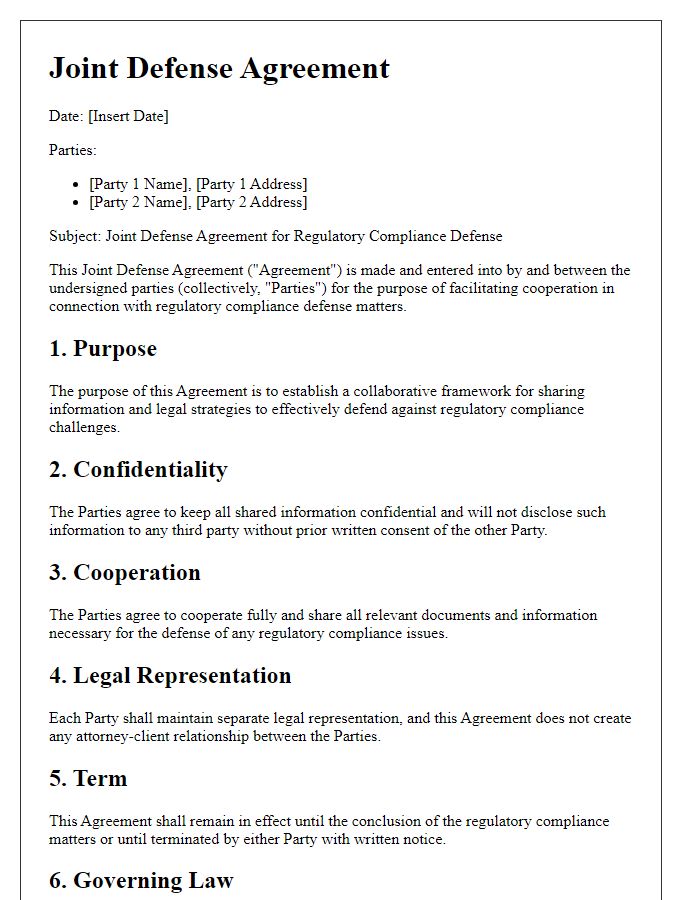

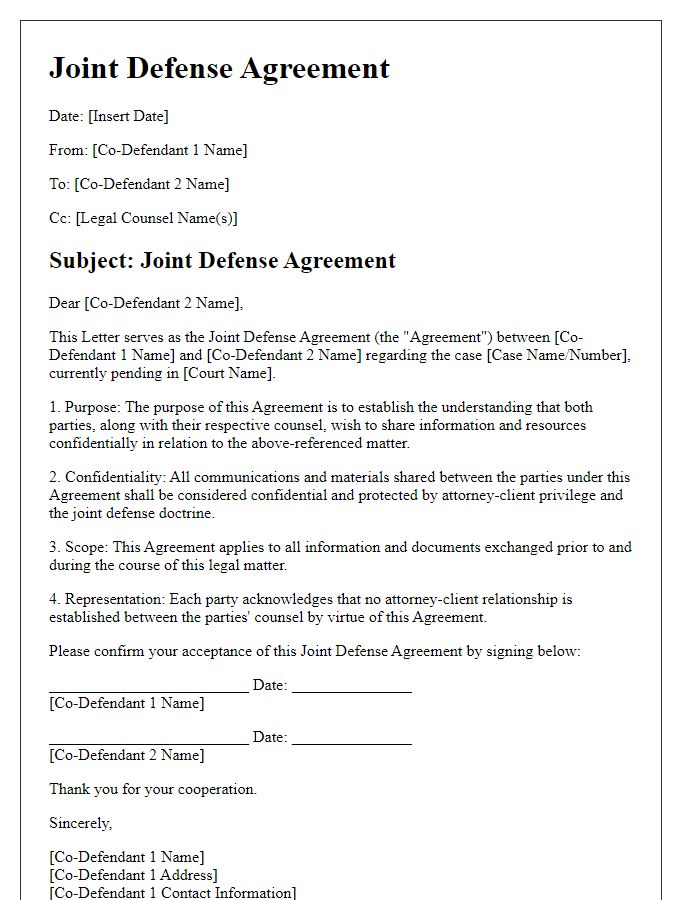
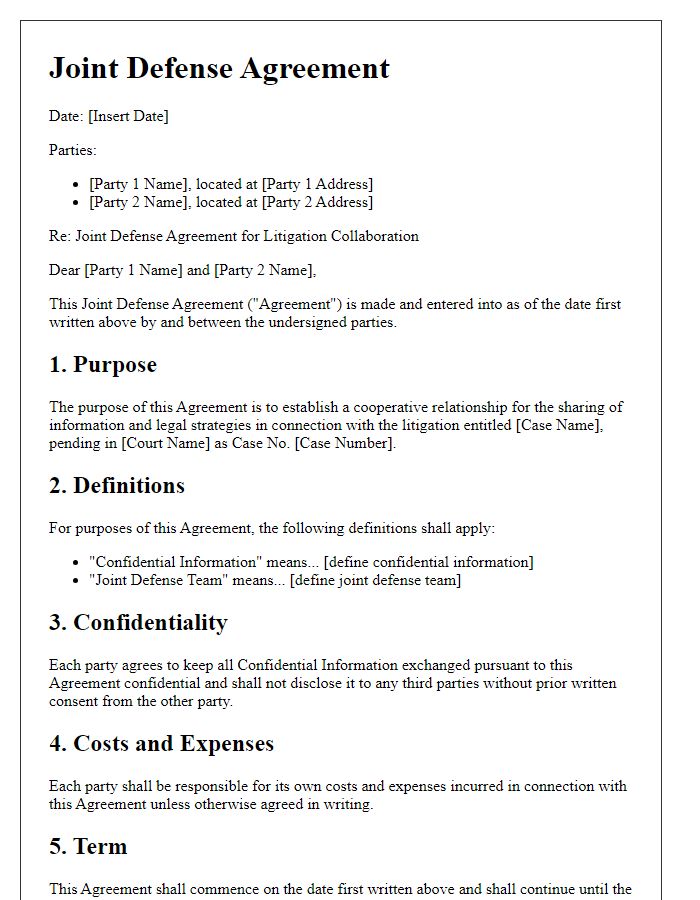
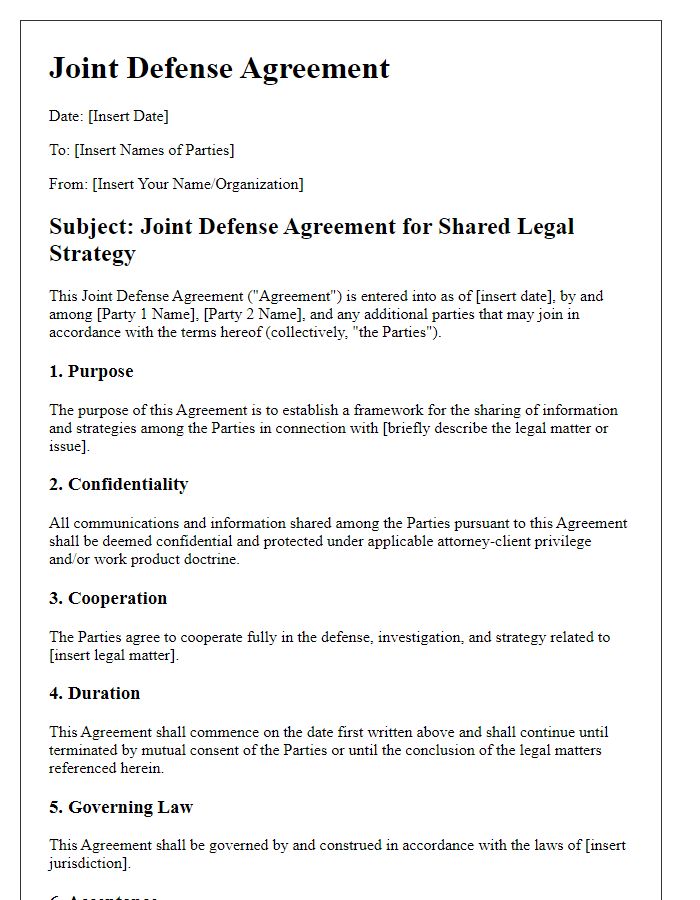
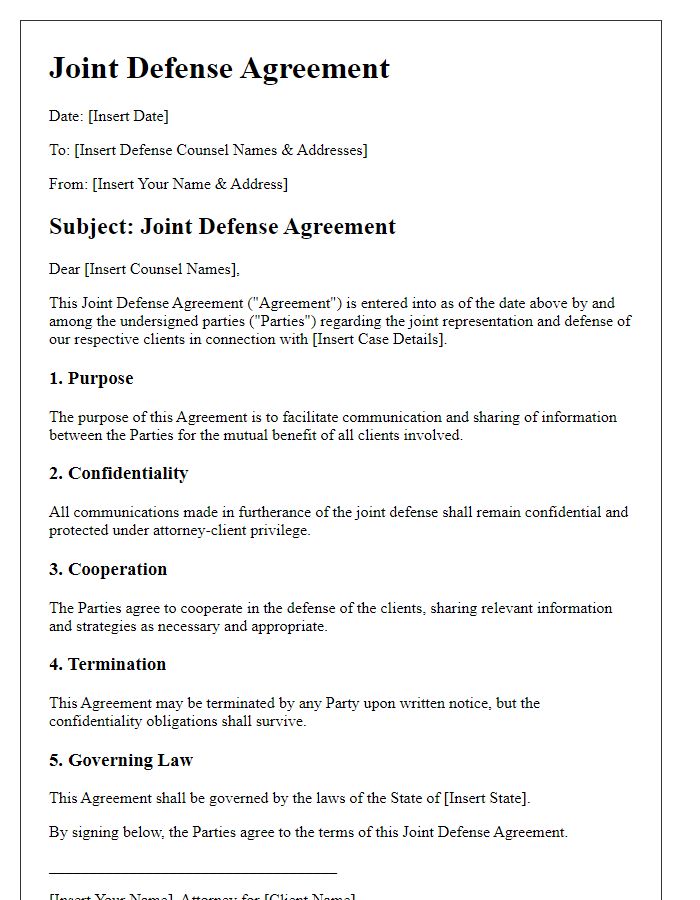
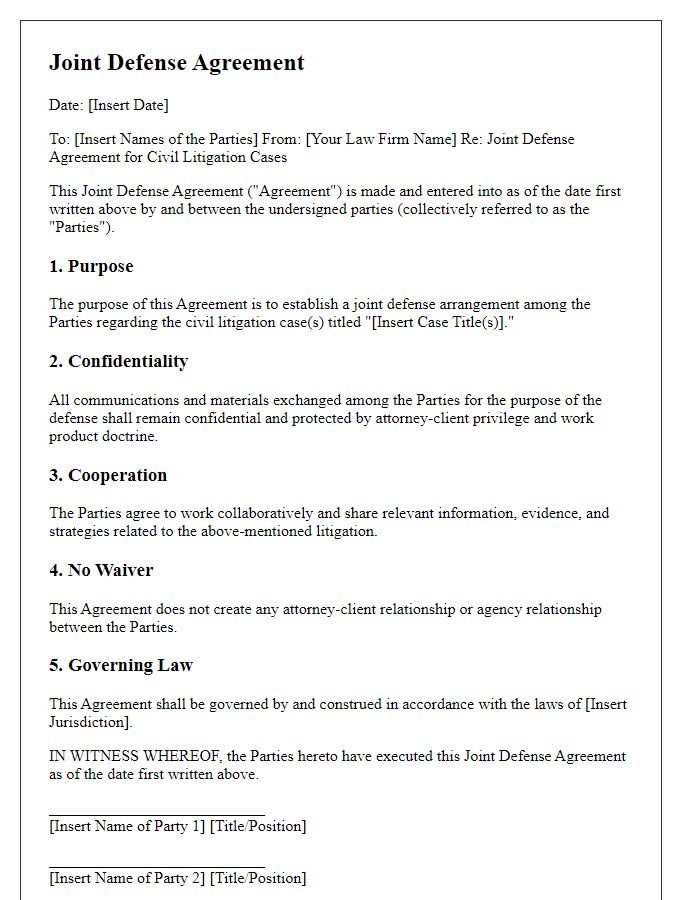
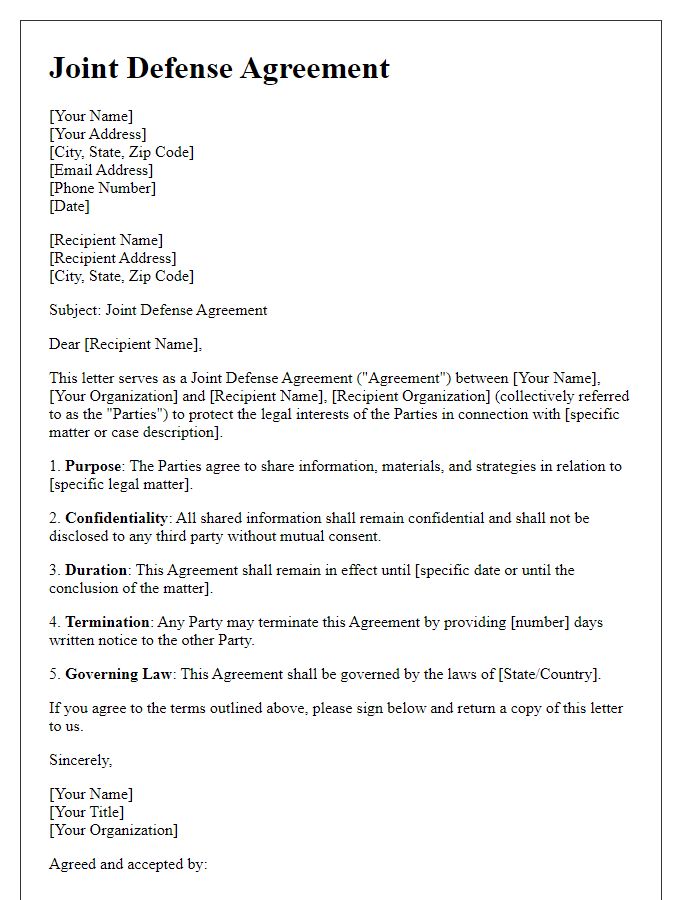


Comments